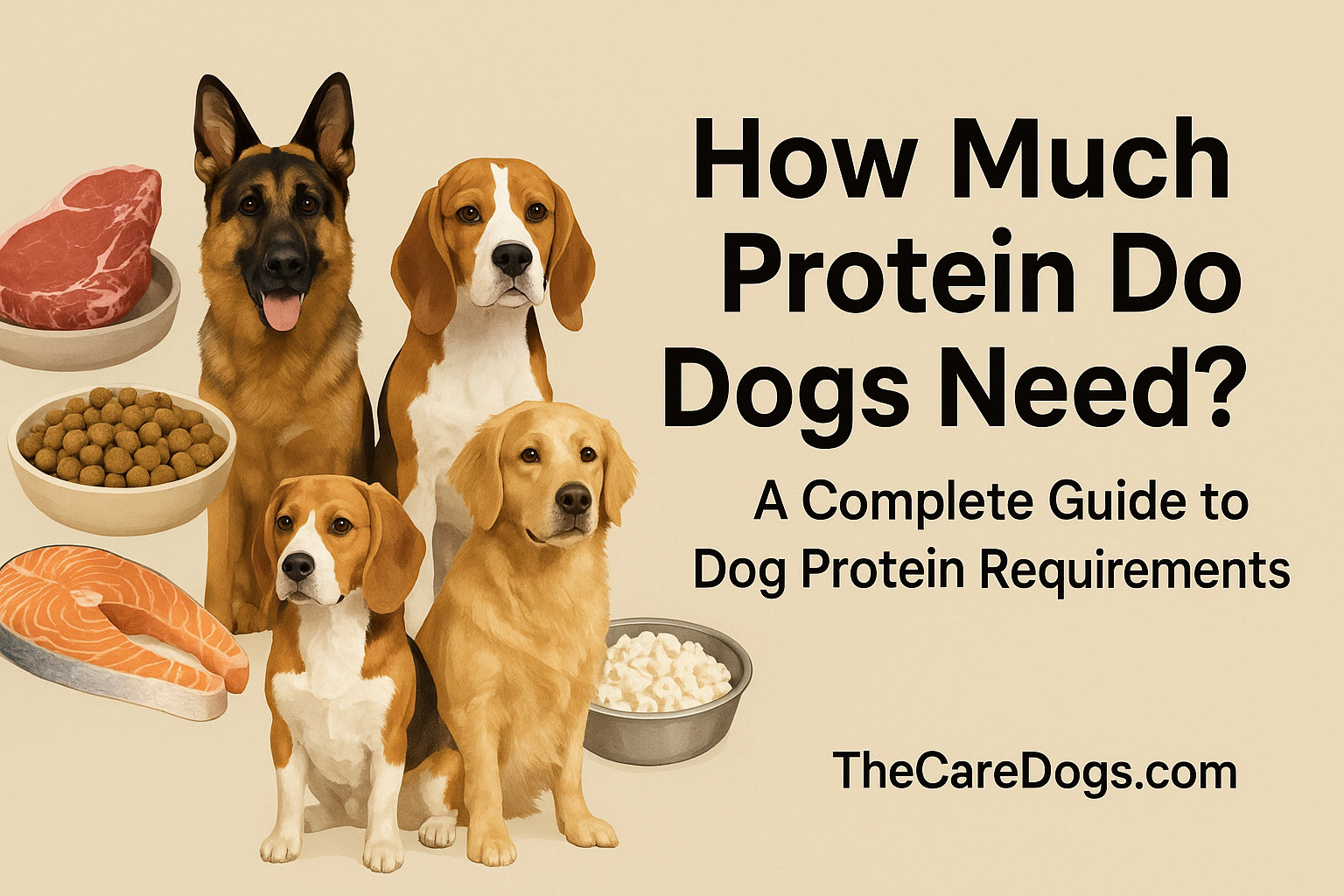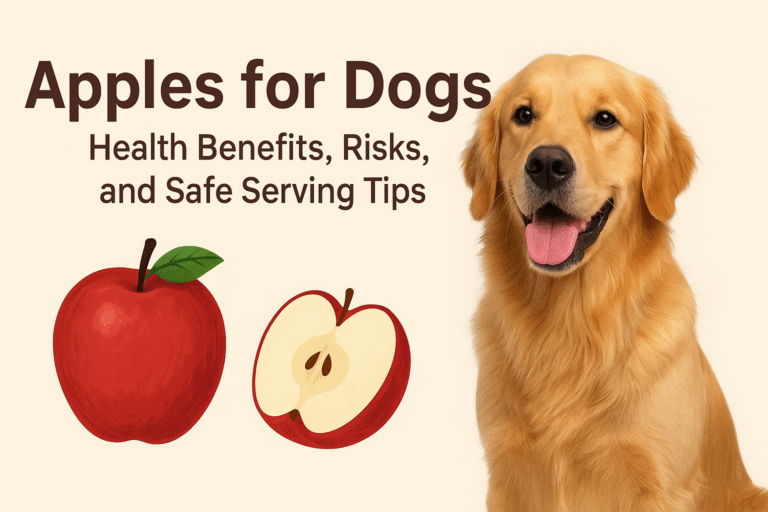How Much Protein Do Dogs Need? A Complete Guide to Dog Protein Requirements
How Much Protein Do Dogs Need Confused by how much protein your dog requires to live? Much Protein Do Dogs Need This comprehensive guide outlines puppy, adult, and senior protein requirements, with advice on choosing the best diet.
How Much Protein Do Dogs Need Is Important for Dogs
How Much Protein Do Dogs Need is the building block of life—and life is exactly what it is. In dogs, protein plays a really critical role in:
- Muscle repair and growth
- Healthy skin and shiny coats
- Best immune system function
- Healing tissues and cells
- Supplying energy when carbs and fat are insufficient
When the protein is deficient, dogs lose muscle, have a bad coat, low energy, or compromised immunity. Too much protein, however, will at times overtax the kidneys, especially in aged pets with pre-existing conditions.
How Much Protein Do Dogs Need Really Need?
Protein quantity required by a dog varies with age, size, activity level, and health.
Puppies
Require most protein for fast development and growth.
Recommended: 22–28% protein consumption.
Adult Dogs
Require balanced amount for upholding muscle and daily activity.
Recommended: 18–25% protein, depending on activity level.
???? Internal link suggestion: Link this section to a blog post such as “Best Dog Foods for Active Breeds.”
Senior Dogs
Continue to be required goods protein buts into limited amounts to keep kidneys from becoming overloaded.
Recommended: 18–23% protein, preferably high-quality and easily digestible.
Working and Sport Dogs
How Much Protein Do Dogs Need Need more protein because they have higher energy expenditure.
Recommended: 25–30% or more.
Factors That Influence a Dog’s Protein Need
- Breed and Size
Certain large breeds will need varying amounts of protein compared to small breeds. Giants typically need individual balance not to lead to growth joint stress. - Activity Level
Working sports dogs and herding dogs will eat more calories and utilize more protein. - Life Stage
Growth, adult, and senior life will all fall within protein requirement. - Health Status
Some dogs suffering from kidney disease, liver disease, or other metabolic diseases might have a specific protein diet that requires being prescribed by a veterinarian.
Best Sources of Protein in Dogs
How Much Protein Do Dogs Need Not all proteins are created equal. The ideal proteins for dogs are top-notch, highly digestible proteins with all of the amino acids they need.
Animal-Sourced Protein Sources
- Chicken – Lean and easy to consume.
- Beef – High amino acids but higher in fat.
- Fish – Contains protein and omega-3 fatty acids to support coat and skin health.
- Eggs – Highly digestible complete protein.
- Lamb and Turkey – Great substitutes for foods the allergic and dogs.
Plant Protein Sources
- Lentils
- Peas
- Soy
- Quinoa
???? Note: Plants may be added as supplemental but never as single-source since dogs perform best with animal-derived proteins.
Symptoms Your Dog Might be Lacking Protein
Watch for these descriptive symptoms that may indicate protein deficiency:
- Dry, brittle coat
- Wounds that heal slowly
- Weight loss or muscle wasting
- Lethargy and lack of energy
- Chronic infection or illness
???? Internal link suggestion: Link to “Top Signs of Nutritional Deficiencies in Dogs.”
Can Dogs Overdo Protein?
Yes, dogs require protein, but excessive amounts every so often is a problem, especially in dogs with existing kidney or liver disease. Possible risks are:
- Increased kidney function
- Gastrointestinal disturbance
- Interference with other minerals and vitamins
How Much Protein Do Dogs Need dogs consuming high-protein foods are generally okay, but balance is always the issue.
Choosing the Right Protein Diet for Your Dog
- Check the Label on the Dog Food
Check the guaranteed analysis label to look for where the crude protein percentage is listed. - Quality Ingredients to Look For
Choose whole meats such as chicken, beef, or fish instead of by-products. - Matching to Your Dog’s Life Stage
Puppy recipes → Higher protein
Adult diets → Moderate protein
Senior dishes → Balanced, low-fat, more digestible protein - Consider Special Requirements
Canine companions with allergenic issues can be helped with limited diets or new proteins such as duck or venison.Kangal Dog Breed Information: Personality, Exercise, and Protection Skills
Home Cooking Diets: Adding Protein to Challenges
Other pet to the owners prepare meals at homes. Healthy as it may be, it is important to make sure your dog receives the proper amount of protein, fats, and carbs. A veterinary nutritionist should be consulted.
FAQs About Protein for Dogs
- How much protein does my dog need to consume daily?
This varies with age, size, and activity level. Puppies required is more than 22% protein and the adult dogs thrive on 25%. - Is high-protein dog food safe?
For healthy dogs, yes. Kidney-diseased older dogs would be best kept on a low-protein diet under the guidance of a veterinarian. - What is protein is in the easiest for dogs to digest?
Eggs, chicken, and fish are very easily digested and contain complete amino acid profiles. - Can dogs be vegetarian?
Dogs can be sustained on vegetarian diets but perform best on animal proteins. If this is being considered as an alternative, advise from a veterinarian to prevent deficiencies. - How can I tell if mine dogs lacks proteins?
Be honest on the lookout for the following signs: hair loss weakness into the muscles slowness in these hearings and lacks of the energy’s. - Does working stock require extra protein?
Yes it performance dogs and athletic dogs need an higher percentage of protein to sustain their energy and supports muscled massd maintenances.
Final Thoughts
How Much Protein Do Dogs Need One of the mostly important and main nutrients into your dogs diet is the proteins. It assists in everything from muscle growth and strengths to immune function and energy for all of theirs body’s functional. The level of the protein will be differ depending on your dog’s life stage size and activity levels.Through selecting good well balanced dogs food and with your pet’s specific needs in minds, your can be provide them with the proper nutrition for a long, happy, healthy life.
Visit: DogCare






